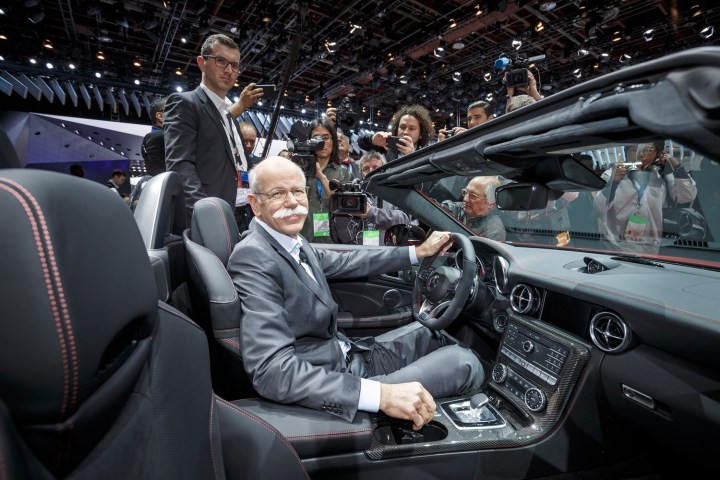
One person who seems to be impressed by Apple’s efforts is Dieter Zetsche, CEO of Mercedes-Benz parent Daimler. A recent trip to Silicon Valley showed that Apple and Google are making more progress on automotive projects than originally assumed, Zetsche said in an interview with German newspaper Welt am Sonntag, translated by Reuters.
“Our impression was that these companies can do more and know more than we had previously assumed,” Zetsche said. “At the same time they have more respect for our achievements than we thought,” he added. Zetsche and a handful of senior managers met with officials from around 70 companies during the Silicon Valley trip, and Apple and Google were reportedly among them.
Zetsche would not discuss the content of the discussions, but said they involved “concrete talks,” and noted that his group met with startups as well as established companies. Increasing interest in things like autonomous driving and connectivity means research work done by traditional automakers is beginning to parallel the work done in Silicon Valley.
Zetsche’s glowing report comes just as Apple’s Project Titan hits some apparent setbacks. Project leader Steve Zadesky is reportedly leaving Apple for “personal reasons,” and an Apple Insider report claims the project is now subject to a hiring freeze. There are already an estimated 1,000 people working on Project Titan, many cherry-picked from automotive companies like Fiat Chrysler Automobiles, Tesla, and battery manufacturer A123 Systems.
Meanwhile, Google may no longer be content to just demonstrate its self-driving cars. Officials have said they want to actively partner with car makers to commercialize the technology. That may include a much-rumored partnership with Ford which could involve the production of self-driving cars for ride-sharing services.


